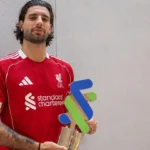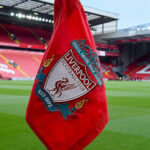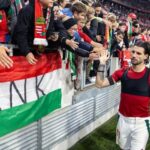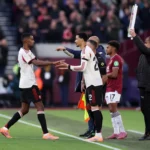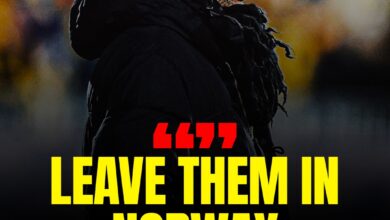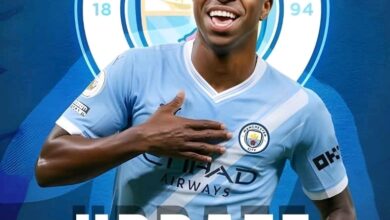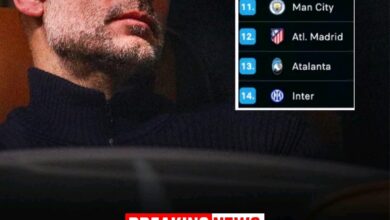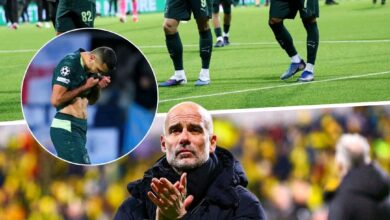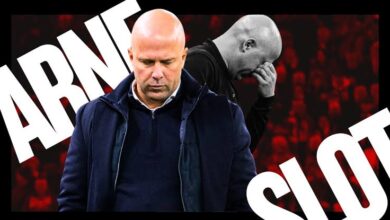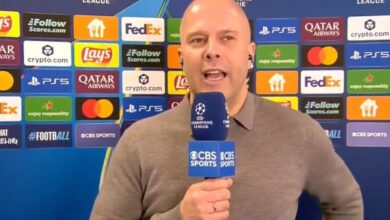THE NIGHT ANFIELD BECAME A THEATRE OF MAGIC
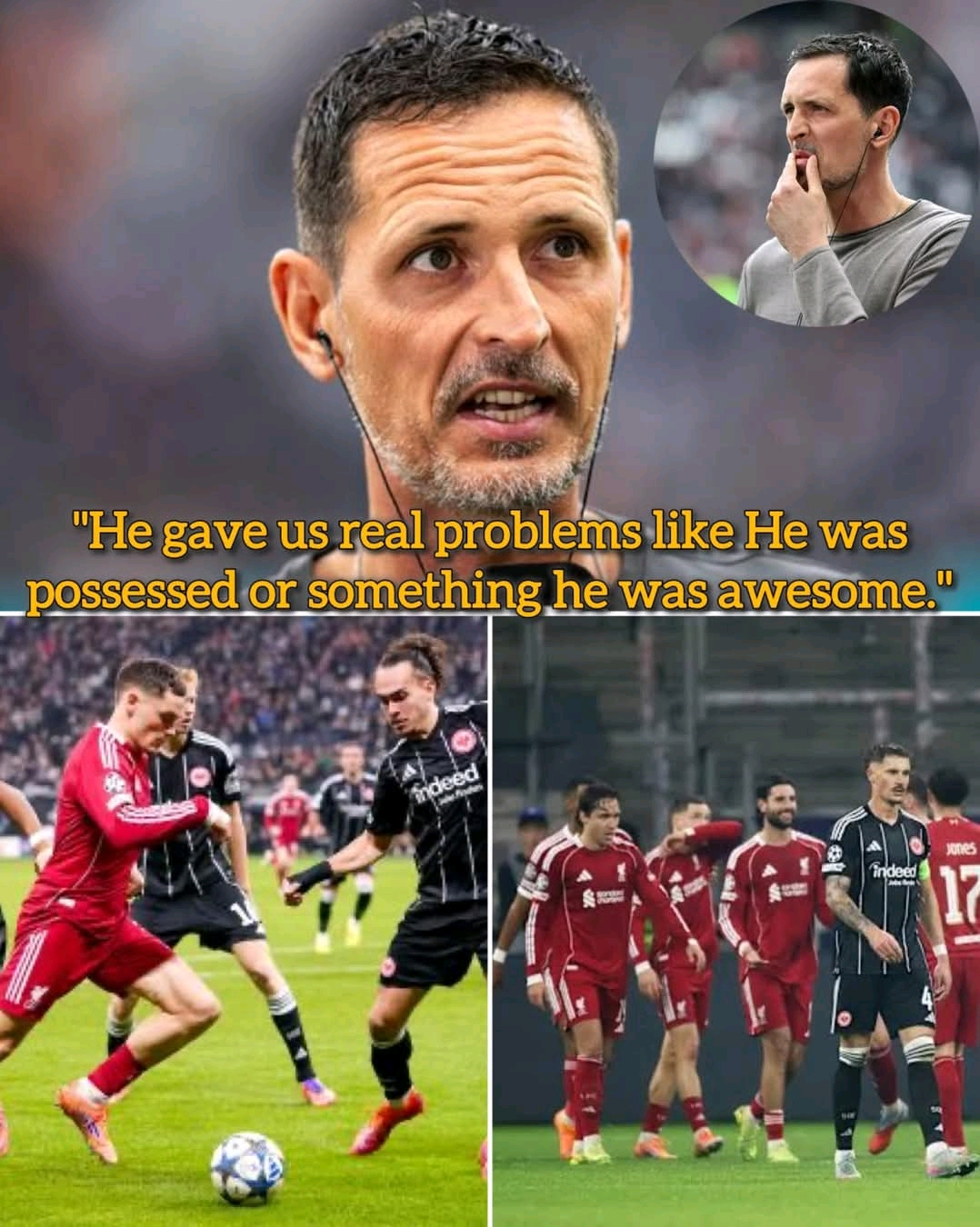
It was a Champions League night that began like any other — the floodlights were bright, the Kop was alive, and Liverpool were desperate to bounce back from a string of unconvincing performances. Many fans arrived with cautious optimism, expecting a win but not expecting fireworks. What they got, however, was something unforgettable — a night when one man turned football into art and forced even the losing manager to stop, applaud, and call him “a monster on that pitch.”
Liverpool’s 5–1 demolition of Frankfurt will be remembered not only for the scoreline but for the brilliance of Dominik Szoboszlai, the Hungarian midfielder who finally reminded Europe why Liverpool fought so hard to bring him to Anfield. Even Frankfurt’s manager, despite the heavy defeat, couldn’t hide his admiration. His post-match interview became the talk of Europe — raw, emotional, and filled with genuine respect for the Liverpool star who had single-handedly dictated the rhythm of the game.
“**Yes, we lost to Liverpool, but let’s be real — he was a monster on that pitch**,” the Frankfurt boss confessed with a tired smile after the match. “The kind of player that makes you forget the scoreline and just enjoy football. His touches, his awareness, the way he led that midfield — it was something else. I can’t even be angry at my team because sometimes, you just have to admit brilliance when you see it.”
Those words cut through the noise of victory and defeat. They came from a rival who had just watched his team be taken apart, not by luck or tactics, but by sheer individual brilliance
From the first whistle, Szoboszlai looked like a man possessed. Every time the ball came near him, he demanded it. Every pass seemed deliberate, every movement calculated, every decision perfect. He glided past defenders, spraying long passes across the pitch, creating chances as if the ball was an extension of his mind.
Frankfurt tried to mark him out of the game — they doubled up, pressed high, tried to rough him up — but nothing worked. Szoboszlai danced around tackles and dictated the tempo like an orchestra conductor waving his baton. Anfield felt it. The fans roared each time he made something happen. And slowly, you could sense the mood shifting — Liverpool weren’t just winning; they were witnessing something special.
By halftime, the scoreline was already 3–0. Szoboszlai had one assist and was involved in nearly every attacking sequence. Even opposition fans in the away end were shaking their heads in disbelief. The cameras panned to the Frankfurt bench — their manager stood frozen, hands on his head, watching helplessly as Szoboszlai made his players chase shadows.
After weeks of questions about his tactics and the team’s consistency, Arne Slot finally had a reason to smile. During the post-match press conference, the Liverpool boss was full of praise for his midfield maestro.
“That’s the Szoboszlai we signed for nights like this,” Slot said. “He played with so much freedom, so much confidence. I think he covered every blade of grass tonight. It wasn’t just about his passing — it was his energy, his leadership, his belief. He wanted the ball when no one else did. That’s the mark of a true player.”
Slot had faced criticism for keeping faith in Szoboszlai despite recent dips in form. But this performance justified everything. It reminded everyone why Liverpool spent big to bring him from RB Leipzig — a player built for big stages, born for nights under the lights at Anfield.
“He was everywhere,” Slot added with a proud grin. “Pressing high, winning duels, creating chances, and driving the ball forward. He showed what it means to play for Liverpool. He didn’t just perform — he led.”
Liverpool fans had always loved Szoboszlai’s flair, but patience was wearing thin. His early season struggles had sparked debate across social media, with many wondering if he could adapt to Slot’s new system. But on this night, all doubts were erased.
“Pure magic from Szobo tonight,” one fan wrote on X.“Even Frankfurt’s coach had to praise him — that says it all.”
Another fan posted, “He didn’t just play football; he painted it. Every pass, every touch — that was art.” A third wrote, “Build the team around Szoboszlai. He’s our future. If Slot’s serious about taking us back to the top, this is the man you trust.”
By full-time, chants of “Szobo! Szobo!” echoed around the stadium. Fans waved flags, held scarves high, and sang his name with pride. It was a moment that showed Anfield’s heart still beats for players who perform with passion and class
In football, it’s rare for a defeated manager to praise the opposition so openly, but Frankfurt’s boss did exactly that. His honesty won him the respect of Liverpool fans across social media.
“Sometimes, you lose and you’re angry,” he told reporters. “But tonight, I’m not angry. I’m amazed. That boy — Szoboszlai — he’s special. Every time he touched the ball, it was like watching something from another planet. He made us forget we were losing.”
He paused for a moment before adding, “You don’t often see a performance like that. It reminded me of the greats — Gerrard, De Bruyne, Modric. He controlled everything. Liverpool are lucky to have him.”
His words spread quickly online, picked up by pundits and journalists who couldn’t help but agree. Former players like Rio Ferdinand and Michael Owen praised Szoboszlai’s composure and vision on TV, while European media outlets hailed his display as “a statement performance.
By the next morning, headlines across Europe carried his name. “Szoboszlai’s Masterclass Lights Up Anfield,” read one. “The Monster in Midfield — Frankfurt Manager Humbled by Liverpool Star,” said another.
Analysts began breaking down his numbers — 92% passing accuracy, three key passes, one assist, and countless recovered balls. But beyond the statistics, it was his energy, his attitude, and his leadership that stood out.
At just 24, Szoboszlai looked like the future Liverpool captain in waiting. The way he shouted instructions, encouraged teammates, and led by example made him more than just a playmaker — he was the heartbeat of the side.
Pundits started comparing him to Steven Gerrard — not because of goals or tackles, but because of the aura. The way Anfield responded to him felt familiar, like watching a new era being born.
In the dressing room after the game, players were said to have applauded Szoboszlai as he walked in. Even senior stars reportedly told him it was “his night.” Sources inside the camp revealed that Arne Slot privately told club officials that Szoboszlai’s performance “set the standard” for everyone else.
There were even whispers that Slot wanted him to take on more leadership responsibilities moving forward — not necessarily with an armband yet, but with authority on the pitch.
Liverpool’s young squad has been searching for identity since Klopp’s departure, and in Szoboszlai, they may have found their new emotional leader — someone who can connect passion with performance, and talent with responsibility.
Football can change quickly — one moment of brilliance, one night of magic, and suddenly, everything feels different. Just a week ago, Liverpool fans were questioning the direction of the team. Tonight, belief has returned.
Anfield was alive again — every chant louder, every pass cheered, every goal celebrated like it meant more than just three points. The stadium felt electric, reminiscent of those unforgettable European nights that defined the Klopp era.
And at the centre of it all was Dominik Szoboszlai — the Hungarian warrior who didn’t just play football; he revived Liverpool’s soul.For Liverpool, this was more than just a Champions League win. It was a statement — to the fans, to the critics, to Europe. Arne Slot’s project may still be in its early stages, but with Szoboszlai at the heart of it, there’s renewed hope.
The Premier League remains the next frontier, and the team must carry this momentum forward. But if Szoboszlai continues at this level, Liverpool could once again become the powerhouse that Europe fears.
For the Hungarian star, this night could mark the true beginning of his Liverpool story. The night he stopped being “a promising signing” and became the man— the heartbeat of Anfield’s next great era.As the Frankfurt manager put it best:
“Sometimes, you don’t just lose a game — you witness greatness. And tonight, we saw greatness

